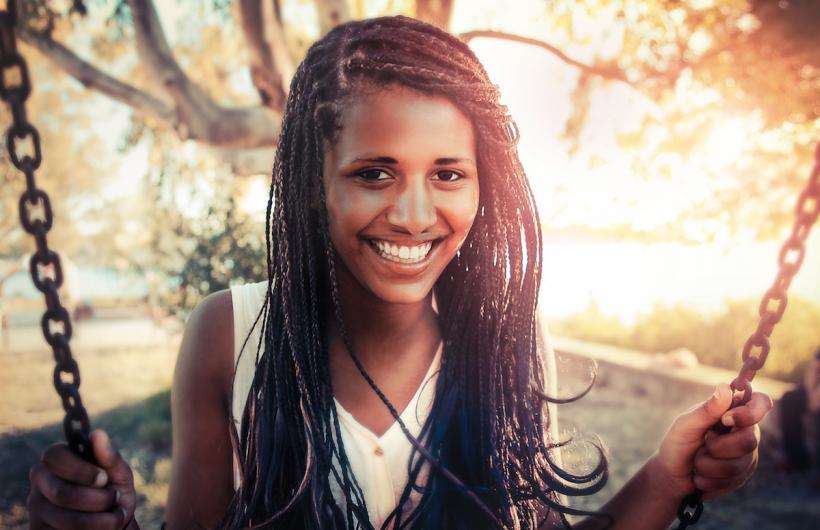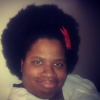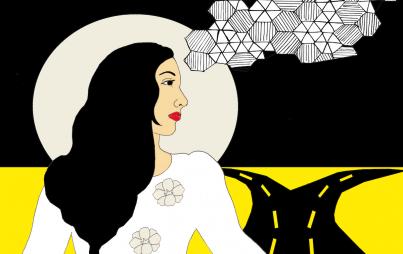
I love you. Image: Llywelyn Nys/Unsplash.
It can feel frustrating and even embarrassing when there's so much to do — so much that you want to do — but you just can't.
Hey boo,
How you doin’?
It’s 5 am and I’m up. I've been up since 2:30, in fact. I have PTSD — it has a terrible effect on my sleep. So my sleep schedule is odd and changes often.
Lately, I’ve been on this kick: I “go to bed” somewhere around 11 am, wake up at 2 pm, go back to sleep at 5 pm, wake up around 8pm, sleep again at 11 pm, and wake up again around 2.
Loads of fun.
When I’m awake, I try to practice self-care as best as I can with the resources I have, and get as much work done as I possibly can when I have the spoons.
As a two-year unemployed aspiring screenwriter and freelance writer-slash-English major-y jack-of-all-trades, that means:
-
writing, writing, writing (and editing, editing, editing)
-
brainstorming
-
hunting for steady, full-time work (mostly writing-, media-, or journalism-related)
-
submitting to screenwriting competitions
-
pitching (or thinking about pitching) to different platforms in the hopes of getting a freelance gig that sticks
But, occasionally — when not watching Netflix, showering, or trying to make sure I eat and take my meds (which I’ve now run out of again) — I have time to think about things.
And at 5 am, I was thinking about you.
Or rather, us.
I am multiply marginalized: Black, bisexual, fat, (cis) woman, disabled (with physical, mental, and learning disabilities), kinky, polyamorous, and poor.
These are journeys that I’ve been on for a while now, but they started at different times in my life.
When I started college in 2005, I deliberately chose to avoid joining any extracurricular activities my first year, so that I could focus on my work and adjusting to college life. As a born-and-raised New Yorker attending Rutgers University in New Jersey, I was essentially all alone.
During that first year, though, I finally came out to myself as bi. After spending the summer in Italy, I returned to Rutgers eager to find a community where I belonged. I started attending LLEGO, a student organization for queer and trans people of color.
That experience changed my life.
As a baby queer, I was new to so many of the issues we talked about during meetings. Nevertheless, my peers and I emerged as leaders within the LGBTQIA student community.
And that is where my activism began. I helped organize and participated in marches and rallies and student anti-war protests, and used my gift as a writer and artist to speak truth to power. It was invigorating, empowering, and life-changing.
Once I left Rutgers, though (without graduating; I eventually finished my degree in 2011), it was mostly non-existent.
It can feel frustrating and even embarrassing when there's so much to do — so much that you want to do — but you just can't.
I disappeared into the exploitative world of retail and spent about three years there, just keeping my head above water. I managed to do a bit of feminist organizing in 2012 and volunteered at the Ali Forney Center for LGBT Homeless Youth for about six months.
The same year, I finally gathered the strength to apply to and attend graduate school at Pace University. Like a good little queer activist, I jumped right back into the fold. I spent a year as the graduate assistant at Pace’s LGBTQA & Social Justice Center. I was home!
Fast forward about two years, to the present day.
The only activism I’ve taken part in since has been my trip to the White House last year.
It sounds like a big deal (and it totally was), but I’ve mostly felt absent, ineffectual, and inadequate... and that’s why I’m writing you this letter.
Between my physical and mental energy-sucking disabilities and my precarious long-term economic depression, both traditional and nontraditional forms of activism have been damn near impossible for me to participate in any meaningful way.
And when you know how much work there is to be done in the liberation struggles, how few people are doing it, and that our lives literally depend on it, it can feel like you’re letting your people down — especially when you’re multiply marginalized.
It can feel frustrating and even embarrassing when there's so much to do — so much that you want to do — but you just can't.
Because you can’t afford the transportation to get to that rally or planning meeting. Because you hardly have the energy to cook and clean, let alone get out of the house.
Because you’re forced to move back in with your mom and everything is so far away. Because you aren’t sure if you or your mom will have the money to keep paying for the cable Internet that gives you access to the potential work, writing gigs, and information that you need.
Because you don’t have the inspiration to write and your thoughts are filled with nightmares and misery, and you can't think about anything but how hard life is — and why it's so hard.
I challenge us to challenge ourselves to take the time to think of those of us who can’t always do activism and why we might not be able to be there.
After a decade of real-life and online activism, especially when you personally know and are connected to so many important, prolific, active activists, it can take everything in you to remind yourself that your worth doesn't lie in the number of rallies you speak at, the number of times you march, the number of times you advocate for your communities in the media, or the number of essays you write for publications large and small.
My worth is not in my activism, but in my being. My worth — our worth — simply is.
Capitalism is part of why we believe our value is in doing instead of being, and this mindset has inevitably and unfortunately seeped its way into even the most radical of us.
I challenge us to challenge ourselves to take the time to think of those of us who can’t always do activism and why we might not be able to be there. Hold us in your hearts.
I guess what I’m trying to say is, I love you.
I love you, my Black people, my bi+ people, my fat people, my woman people, my disabled people (my crip people, my mad people), my poor people, my kinky people, my poly people.
I can't always be there, but whether you’re on the front lines or cowering in a closet somewhere, please know you are loved.
Love,
Denarii







